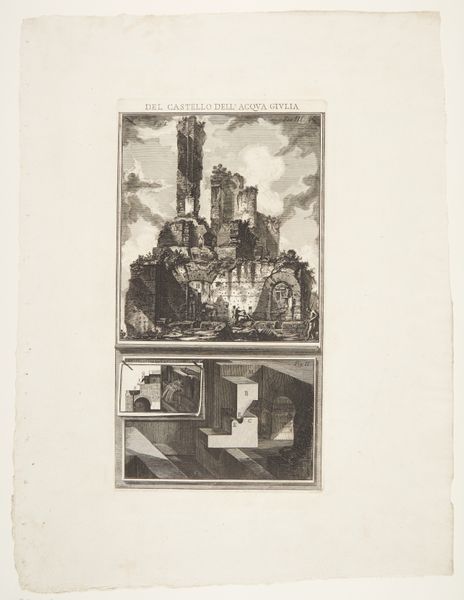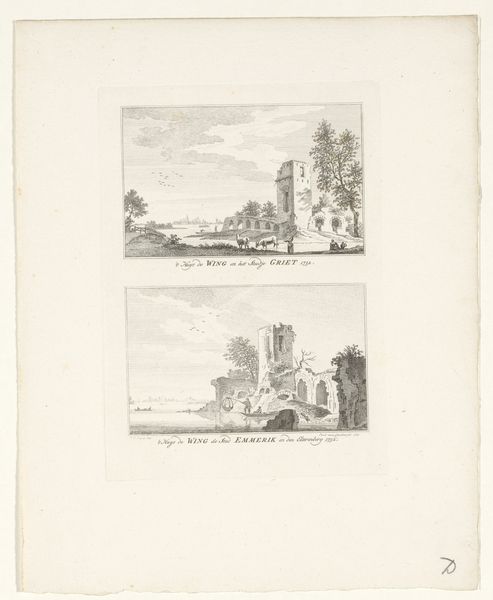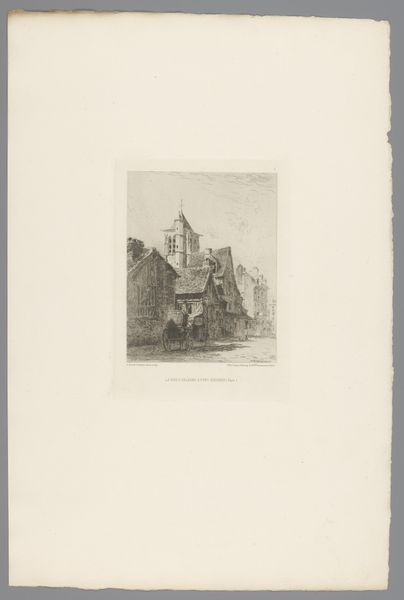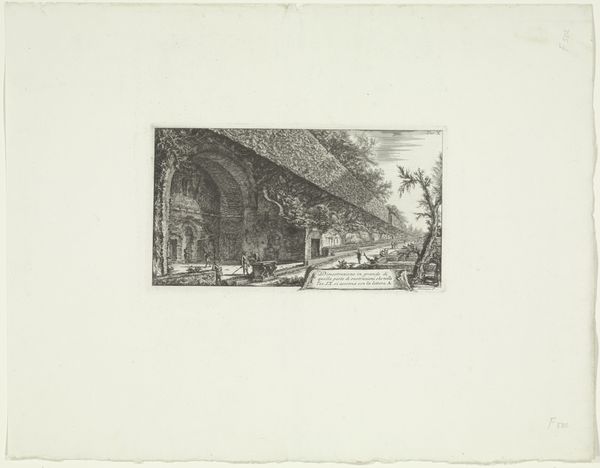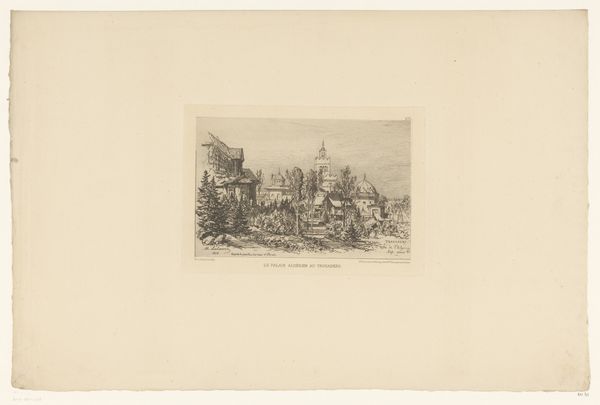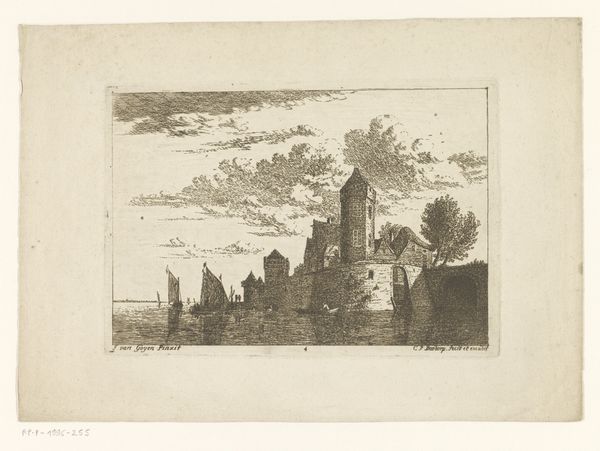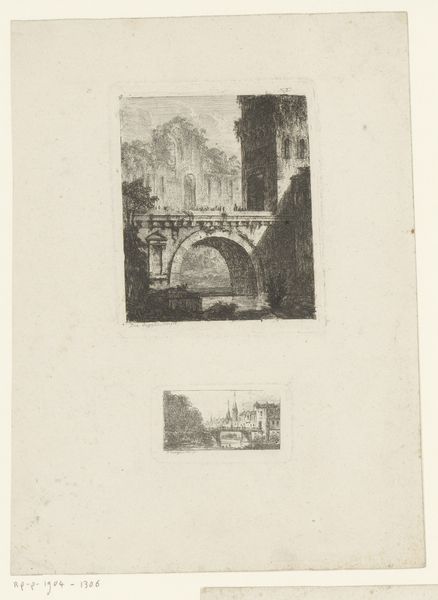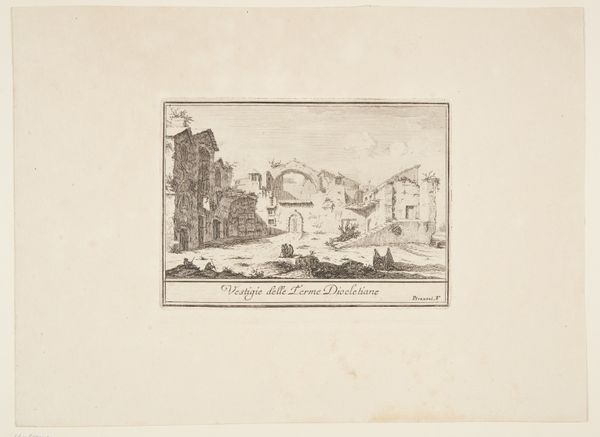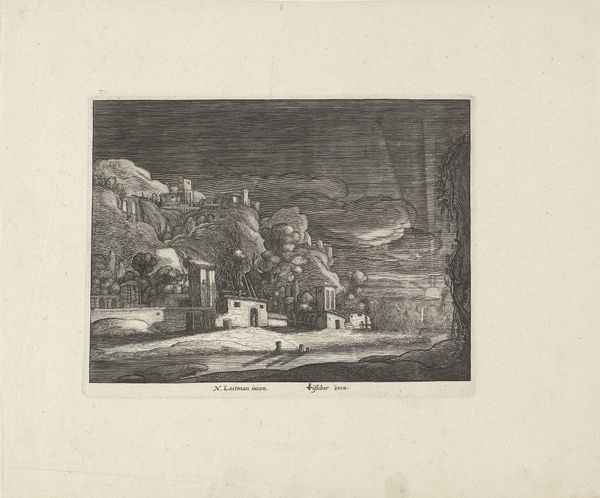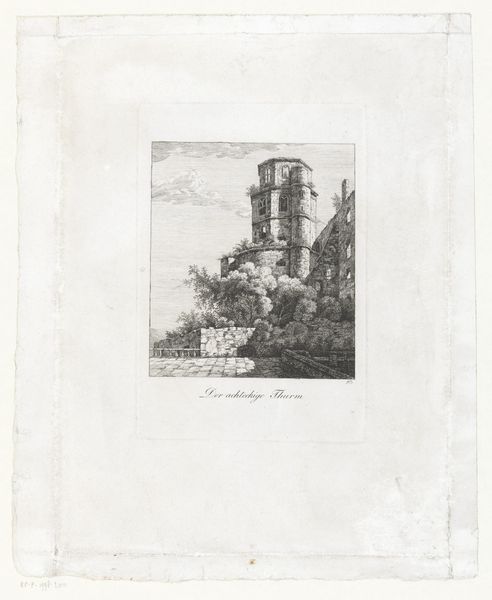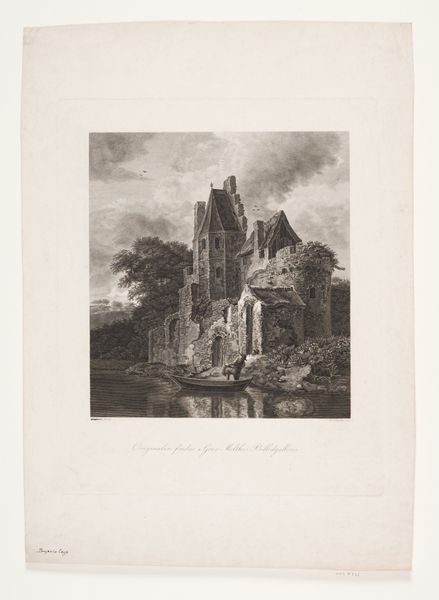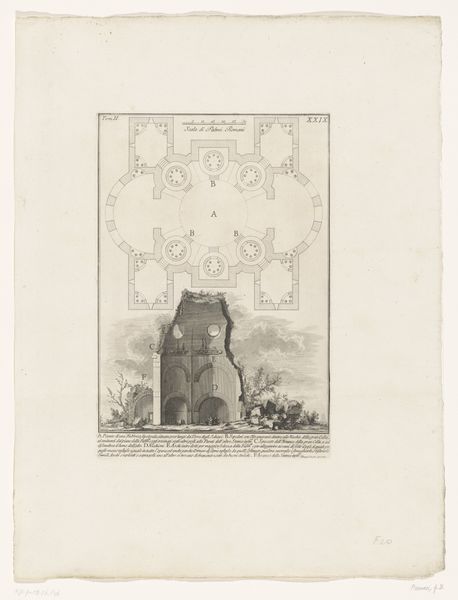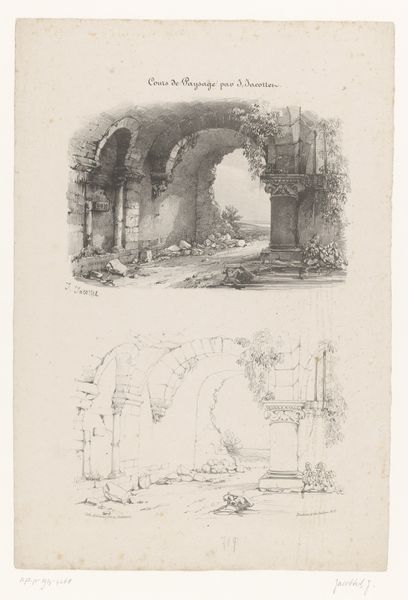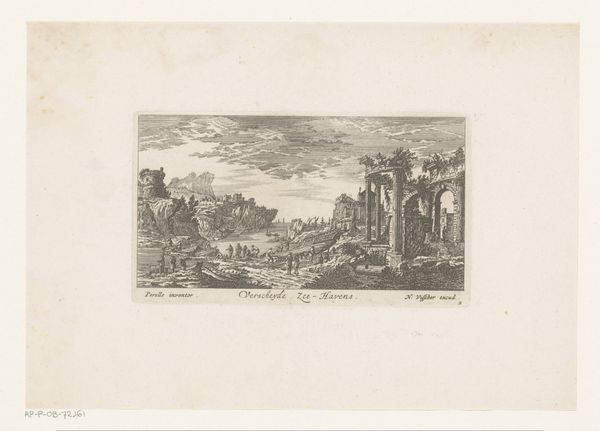
Restanten en plattegrond van de graftombe van de Horatii en Curiatii 1762
0:00
0:00
giovannibattistapiranesi
Rijksmuseum
print, etching, engraving, architecture
# print
#
etching
#
old engraving style
#
landscape
#
romanesque
#
history-painting
#
engraving
#
architecture
Dimensions: height 189 mm, width 289 mm, height 141 mm, width 205 mm
Copyright: Rijks Museum: Open Domain
Giovanni Battista Piranesi etched "Restanten en plattegrond van de graftombe van de Horatii en Curiatii" to capture the melancholic grandeur of Roman antiquity. The tomb's ruins, overtaken by nature, symbolize the inevitable decay of even the mightiest structures. The circular plan below echoes ancient cosmological diagrams, where the circle represents the cosmos and the square its earthly manifestation. This motif is echoed in Renaissance art, where circular forms often symbolize divine perfection contrasting with the imperfect world. Consider the emotional weight of ruins. They evoke nostalgia for a lost golden age, a psychological yearning for an idealized past. The image of decay, a constant reminder of mortality, resonates deeply within our collective subconscious, urging us to confront the transient nature of existence. Such symbols don’t simply vanish; they undergo metamorphosis. This eternal cycle of destruction and rebirth, mirrors humanity's ongoing struggle to come to terms with time's relentless march.
Comments
No comments
Be the first to comment and join the conversation on the ultimate creative platform.
